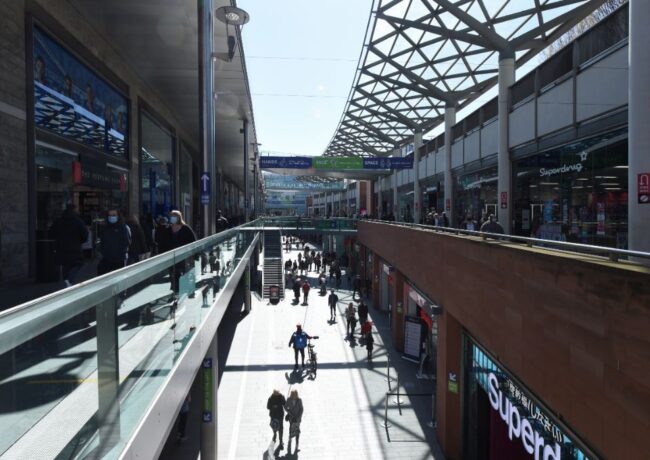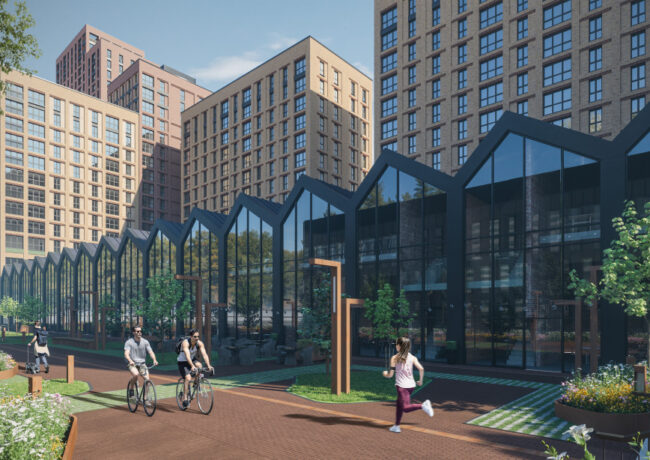Report lays bare Covid’s high street impact
Retailers in Manchester city centre lost out on the equivalent of 41 weeks’ worth of sales compared to before the pandemic, while Liverpool missed out on 26 weeks of revenue, according to research by Centre for Cities.
In the North West, Manchester’s retailers have been hit harder than anywhere else since March 2020. Meanwhile, Liverpool trailed Wigan and Preston as the fourth worst-hit area, the study found.
Nationally, high street sales were down 35% on pre-pandemic levels, largely as a result of enforced closures under Covid-19 regulations.
One in 10 retail units in Manchester and Liverpool is currently empty following a 2.4% increase in vacancy during the last two years.
While the region’s cities were hardest hit, the report found that high streets in “economically weaker places” have been less impacted by Covid-19.
Shops in Burnley, for example, have lost just eight weeks of sales since March 2020, the best of any of the 52 towns and cities included in the study. On the other side of Lancashire, Blackpool saw the number of vacant stores in the town centre decrease.
“This suggests that the government’s Covid-19 support successfully stalled the decline of many struggling high streets but was less effective in economically stronger places due to higher rents and a lack of custom from office workers,” according to Centre for Cities.
Having been sheltered from the worst of the pandemic, weaker high streets could face a wave of new business closures this year, Centre for Cities warned. With the Levelling Up White Paper due to be published next month, stakeholders in places such as Burnley will be looking at what measures Whitehall is taking to boost the high street. Centre for Cities said policymakers should focus on tackling “fundamental economic problems…rather than on cosmetic quick fixes such as hanging baskets and painting shop fronts”. Andrew Carter, chief executive of Centre for Cities, said: “The big concern is for economically weaker places where Covid-19 has actually paused their long-term decline. “To help them avoid a wave of high street closures this year, the government must set out how it plans to increase peoples’ skills and pay to give them the income needed to sustain a thriving high street. Many of these places are in the so-called Red Wall so there is a political imperative for the Government to act fast, as well as an economic one.”





No surprises really after a couple of years where the government money printers have been turned on full and people haven’t been earning or spending. The rebound is really going to hurt and it’s the already marginal areas that will feel it hardest. You don’t need a report to have predicted that.
By Anonymous
I’m amazed that it’s only one-in-ten retail units standing empty – seems to be more than that in central Manchester.
By Justin M Strong
It’s self evident that the economically strong centres will bounce back quickly as people are forced back to the office and Covid restrictions ease..Higher interest rates though are not going away any time soon and therefore neither are higher costs and higher wage demands . Strap in folks it’s going to get bumpy. Ooh ..it’s like the seventies all over again , but with Bitcoin. I’m breaking out the flares and the penny round collar shirt. It’s starting to feel like home again.
By Adam Adamant